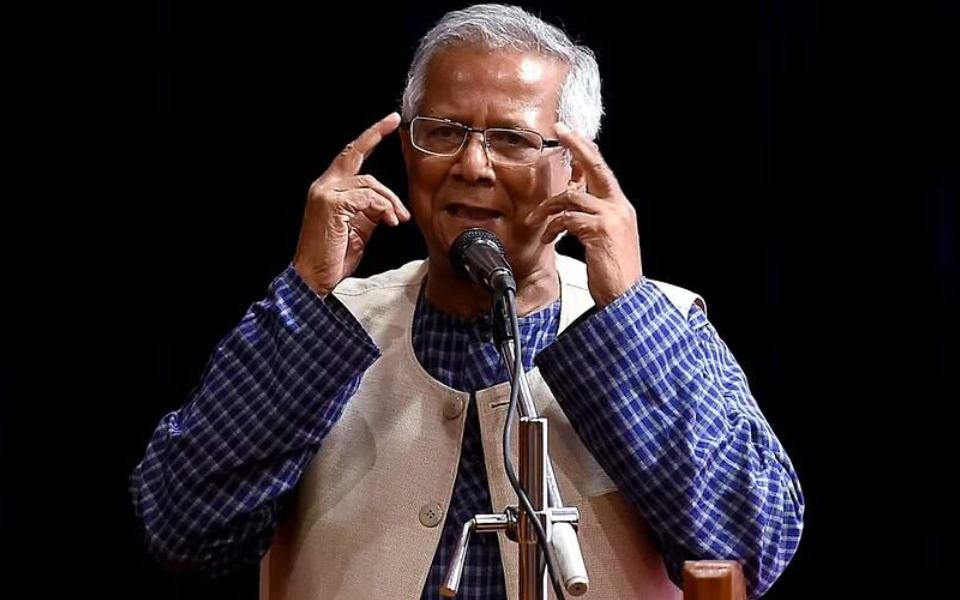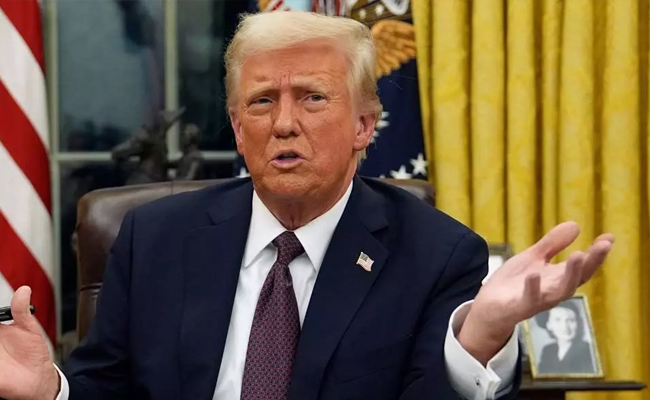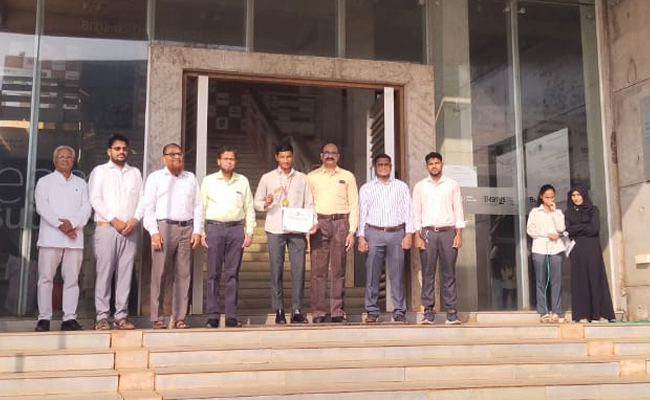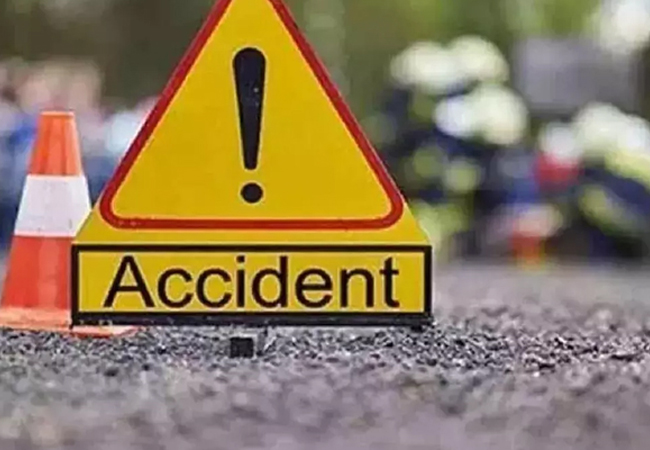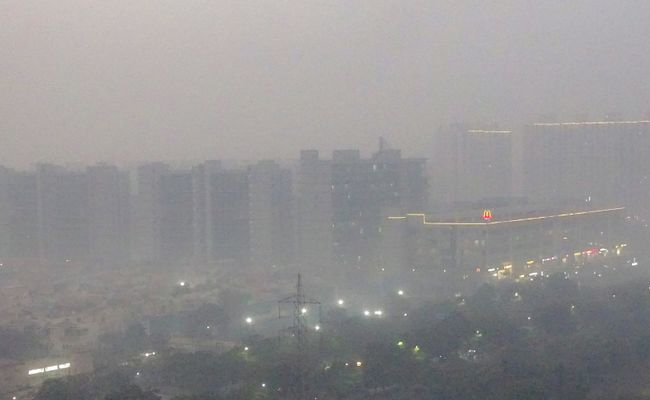Dhaka, Aug 18: Bangladesh's interim government chief Muhammad Yunus on Sunday alleged that Sheikh Hasina's "brutal dictatorship" destroyed every institution of the country during her decade-and-a-half-long reign when elections were "blatantly rigged."
Briefing foreign diplomats stationed in Dhaka for the first time, 10 days after assuming charge as the Chief Advisor of the interim government after Hasina's resignation and her fleeing to India, the 84-year-old Nobel laureate sought the support from the international community to rebuild Bangladesh after the “Second Revolution” following the mass uprising.
Yunus assured the diplomats, including India's High Commissioner in Dhaka, Pranay Verma, that his administration will hold a “free, fair and participatory” election as soon as his government completes the "mandate" of carrying out "vital reforms."
"The revolutionary students want us to carry meaningful and deep reforms, which will turn the country into a real and thriving democracy. The task is huge but doable with the support of all people and the international community," he said.
Hasina, 76, resigned and fled to India on August 5 following a massive protest by students against a controversial quota system in government jobs.
After Hasina's ouster, Yunus took oath as the Chief Adviser of the interim government on August 8.
"In their efforts to stay in power, Sheikh Hasina's dictatorship destroyed every institution of the country. The judiciary was broken. Democratic rights were suppressed through a brutal decade-and-a-half-long crackdown,” Yunus alleged.
Hasina served as the prime minister of Bangladesh from June 1996 to July 2001 and again from January 2009 to August 2024.
Yunus said his government would hold "free, fair and participatory" elections soon but the voting would be held "as soon as we can complete our mandate to carry out vital reforms in our election commission, judiciary, civil administration, security forces, and media".
Yunus said he took over a country that was "in many ways a "complete mess" following the "brutal dictatorship" of Hasina.
Yunus said, "Bangladesh witnessed a Second Revolution, while hundreds of thousands of valiant students and people rose up against the brutal dictatorship of Sheikh Hasina".
He emphasised on required reforms in the Election Commission, judiciary, civil administration, security forces and the media.
The chief adviser alleged elections held under Hasina's regime were "rigged blatantly and generations of young people grew up without exercising their voting rights."
"Banks were robbed with full political patronisation. And the state coffer was plundered by abusing power,” Yunus said, adding that they will also make sincere efforts to promote national reconciliation.
Yunus said they will undertake robust and far-reaching economic reforms to restore macroeconomic stability and sustained growth, with priority attached to good governance and combating corruption and mismanagement.
"The top priority of the Interim Government would be to bring the law and order situation under control...The armed forces will continue to serve in aid of civil power as long as the situation warrants," he said.
“We will be close to normalcy within a short period, with the unwavering support of our people and patriotic armed forces,” Yunus said.
The police force has also resumed its operations. The armed forces will continue to serve in aid of civil power as long as the situation warrants.
"Our government remains pledge-bound to ensure the safety and security of all religious and ethnic groups,” he said.
Bangladesh saw a spike in violence against members of Hindu communities following the fall of the Hasina-led government.
He said they have also made it a priority to ensure justice and accountability for all the killings and violence committed during the recent mass uprising.
He said they will uphold and promote all their international legal obligations, including international humanitarian law and international human rights law.
"Our government will adhere to all international, regional and bilateral instruments it is a party to. Bangladesh shall continue to remain an active proponent of multilateralism, with the UN at the core," Yunus said.
"Our government will nurture friendly relations with all countries in the spirit of mutual respect and understanding and shared interests," he said.
He called upon their trade and investment partners to maintain their trust in Bangladesh for economic prosperity.
“Bangladesh stands at the crossroads of a new beginning. Our valiant students and people deserve a lasting transformation of our nation. It is a difficult journey and we need your help along the way. We need to fulfil their aspirations. The sooner the better,” he said, adding that they have to create opportunities to build a poverty-free and prosperous new Bangladesh.
Yunus, who is known widely for his pioneering of microfinancing, said he expected the international community to stand by his government and people as "we chart a new democratic future".
"We believe all our friends and partners in the international community will stand by our government and people as we chart a new democratic future,” he said.
Yunus paid deep respect and homage to all those valiant students and innocent people who made the supreme sacrifice.
“Students of no other countries in our recent memory had to pay so much a price for expressing their democratic aspirations, dreaming a discrimination-free, equitable, and environmentally-friendly nation where human rights of every citizen are fully protected,” he said.
"We have also made it a priority to ensure justice and accountability for all the killings and violence committed during the recent mass uprising," he said, adding that his government welcomed the UN rights office's move to send a UN-led fact-finding mission.
"We want an impartial and internationally credible investigation into the massacre and subsequent due judicial processes. We will provide whatever support the UN investigators need," he said.
Let the Truth be known. If you read VB and like VB, please be a VB Supporter and Help us deliver the Truth to one and all.
New York/Washington (PTI): US President Donald Trump has repeated his claim of resolving the India-Pakistan conflict and asserted that Islamabad's leadership credited him for saving millions of lives.
"We stopped a potential nuclear war between Pakistan and India. And the head of Pakistan, a highly respected General, he's a Field Marshal and also the Prime Minister of Pakistan, said President Trump saved 10 million lives, maybe more...,” Trump said Monday.
He made these remarks at Mar-a-Lago, Florida, flanked by Defence Secretary Pete Hegseth, Navy Secretary John Phelan, and Secretary of State Marco Rubio.
“You know, eight planes were shot down. That war was starting to rage, and he actually said the other day that President Trump saved 10 million lives, maybe more. So we solved all these wars. The only one I haven't solved yet is Russia, Ukraine,” he said.
ALSO READ: Man murders colleague, dumps body in water tank in Palghar; held
Since May 10, when Trump announced on social media that India and Pakistan had agreed to a “full and immediate” ceasefire after a “long night” of talks mediated by Washington, he has repeated his claim over 60 times that he “helped settle” the tensions between the two neighbours.
New Delhi has consistently denied any third-party intervention.
India launched Operation Sindoor on May 7, targeting terror infrastructure in Pakistan and Pakistan-occupied Kashmir in retaliation for the April 22 Pahalgam attack that killed 26 civilians.
India and Pakistan reached an understanding on May 10 to end the conflict after four days of intense cross-border drone and missile strikes.

